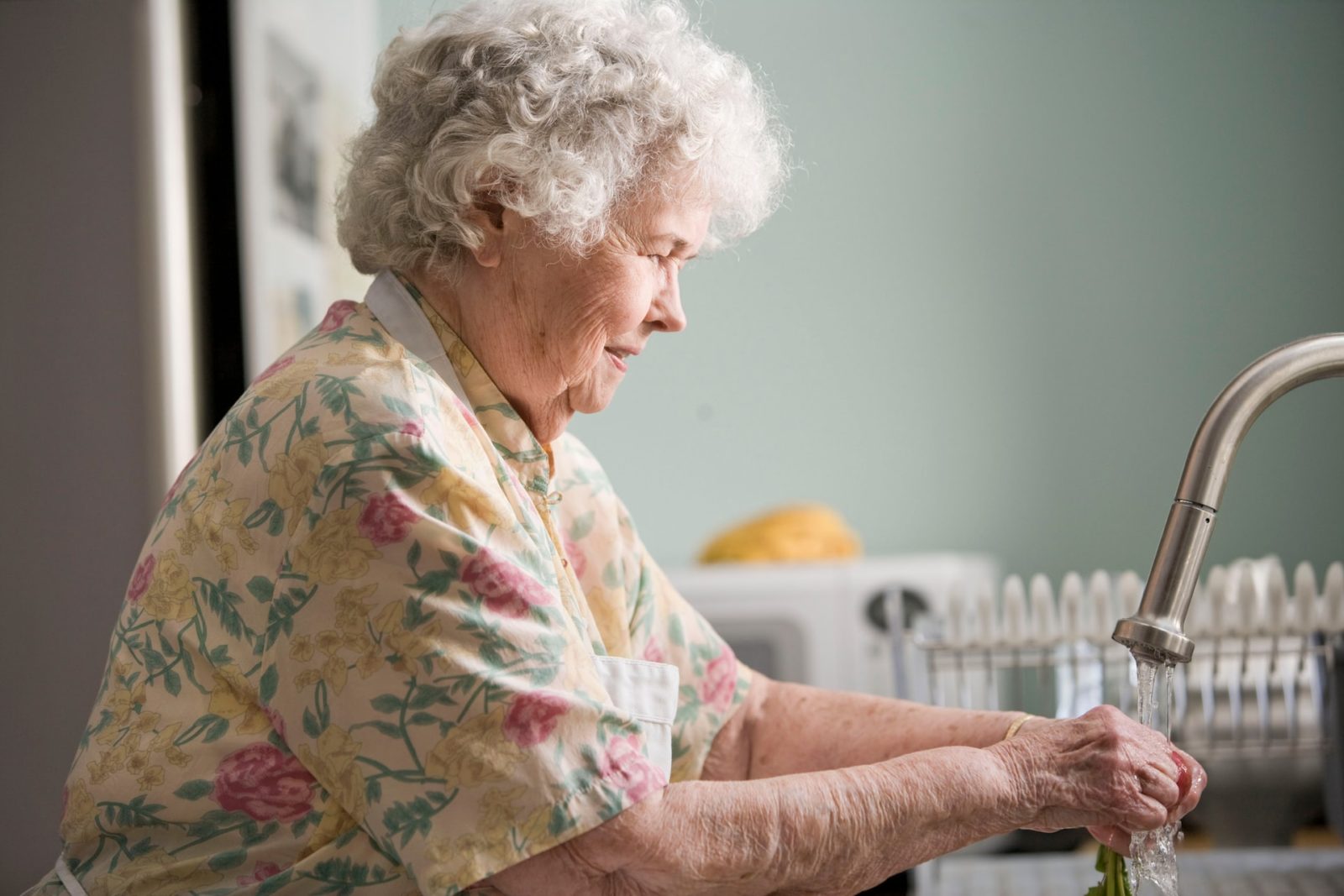Family Estate Planning Law Group’s Family Care Meeting™ is a great way to begin talks with your family about your estate plan. By bringing together your team, which can include your loved ones, our attorney team, a financial advisor, accountant, or any other professional you want included, the Family Care Meeting™ opens up communication, facilitating the conversation and answering questions from all those involved.
After the Holidays
Families tend to be at the center of holidays.
The holiday season is a great time to gather to celebrate and carry on our family traditions. This year, some of our traditions needed to be modified or changed, but I find that most families have adapted and found ways to stay connected. In estate planning, we’ve found that communicating with our families about their estate plan is necessary to ensure their estate plans will actually work, and that their family is taken care of. That’s why we’ve included a family care meeting in our estate planning process, whereby you, your trusted advisers, and your family members meet to discuss your estate plan and how best to take care of you and your family in the event of incapacity and death. Remember, we do not have to disclose the value of assets in these meetings (because we don’t know the value of the assets when you die), but it is important that your family meets your trusted advisors, understands what your intent is regarding your estate plan, and knows that you’ve taken the steps necessary to make things easier for them when you die.
Infographic: How Family Estate Planning Law Group Works With You
In this infographic, learn how Family Estate Planning Law Group will work with your family to create plan that not only addresses your goals and concerns, now, but one that will take care of your family when it matters most. Click the image to view the full infographic:
Are You Setting Your Family Up for an Estate Planning Dispute?
Perhaps because of Hollywood or other fictional portrayals—Knives Out being a recent (and fun) cinematic example—wills and inheritances seem to not bring out the best in people. Most people don’t want to think about the potential for a family fight when it comes to planning their estate.
But, as the old saying goes, ‘failing to plan is planning to fail.’ It’s not just planning for animosity or sibling rivalry—what if your wishes aren’t clear? What if your estate goes through probate and causes misunderstandings opening the family to a stressful and public process? Probate is something you can avoid with the right planning, but you have to take care of now to prevent probate from happening through smart planning and communication.
Elderly Loved One Moving In? How to Make Your Home Accessible
According to agingoptions.com, the number of aging parents living with adult family members is rising dramatically, with between five and six million elderly adults currently living in a household headed by their adult child. This is a 67 percent increase since 2007. While such a living arrangement is often due to economic considerations, others simply have a strong desire to care for those who cared for them. There are many issues to consider when an elderly loved one moves in; one of those issues is making your home accessible. While the specific upgrades you undertake will depend on the health and needs of your loved one, some of the top home renovation suggestions for seniors include:
Choosing the Right In-Home Caregiver For You
According to an AARP survey, about 90 percent of American seniors want to live in their own homes as long as possible. Known as “aging in place,” it’s no surprise that most seniors would much prefer living in their own homes as opposed to facility care. Unfortunately, physical or cognitive issues can often make this a difficult option.
Family members who fully understand the benefits associated with aging in place—a sense of independence, better health outcomes, and the comfort that only “home” can provide—may consider an in-home caregiver for their elderly loved one.
Your loved one might benefit from an in-home caregiver for medical needs as well as with assistance in light housekeeping, routine errands, and other daily living activities. Once you have made the decision to hire a caregiver, it is important that you understand how to choose the best in-home caregiver for your elderly loved one. [Read more…]
Infographic: What to Consider When Choosing a Guardian for Your Children
It can be difficult to plan for the unthinkable, but if you have minor children, not only is choosing a guardian a “must-do,” it can also afford you peace of mind. You may find choosing a guardian to be challenging, but it does not need to be overwhelming. In a recent blog post, we went over some aspects to consider when choosing a guardian and we’ve also compiled them into an infographic for you.
Top Ten Estate Planning Mistakes You Can Make During Covid-19: And How You Can Avoid Them – Part 1
We’ve been talking a lot recently about the mistakes we see in estate planning because now, more than ever, we are finding that people feel uncertain, and they want to know their loved ones are secure. Despite the best of intentions, sometimes estate plans just don’t work because they were not set up or maintained properly (or you never had one to begin with). While we all want to feel good about our planning, we also want to make sure it is not a false sense of security. The next few blogs will address the mistakes we often see, and how you can make sure that you don’t fall prey to them!
Mistake #1: Procrastination
One of the biggest and most common mistakes that we see in estate planning is procrastination. For many, creating an estate plan (or updating the one they did 15 years ago) is something they are always meaning to get to but never actually do. The biggest mistake you can make is not having an estate plan, because the probate court has one for you. And for those who do have a plan, their biggest mistake may be not having looked at it in years. Changes in the law, changes in what you own, family changes, job changes, changing your residence, and changing your wishes can all keep an old plan from being effective if it is not updated. In our experience, most estate plans fail because they do not reflect what you want to have happen now.
The solution to this mistake is simple: create an estate plan or update your existing estate plan. Even if you are not quite sure who you want involved or the exact details you want to be included in your plan, someone who specializes in estate or elder law planning will be able to help you with that. Additionally, if you work with a firm that has an ongoing care program, you can always update your plan if you change your mind or if your situation changes. [Read more…]
What to Consider When Choosing a Guardian for Your Children

It can be difficult to plan for the unthinkable, but if you have minor children, not only is choosing a guardian a “must-do,” it can also afford you peace of mind. You may find choosing a guardian to be challenging, but it does not need to be overwhelming. Sit down and consider the people you would be comfortable with raising your children. Once you have a shortlist, ask yourself the following questions about each potential guardian:
- Where does the person live? It is unrealistic to expect a guardian who lives a significant distance from you—and has their own life—to suddenly move into your home with your children. It is more likely the children will move into the guardian’s home, so think about whether the proposed guardian has a home large enough to accommodate your children—and if you are okay with your children being raised there. You may also want to consider how a move could affect your children, particularly if it takes them away from their current school or it puts them a significant distance from their friends.
- Do you know what the person’s religious, political, and moral beliefs are—and are you comfortable having your children’s views shaped by those beliefs? Obviously, you will never find a guardian who holds 100 percent of your personal beliefs, but you want to try for at least similar beliefs.
- Does the person have his or her own children? If so, are you comfortable with their views on child discipline, education, sports, etc.? If the person does not have children, have they spent time with yours?
- How old is the person? While an older guardian is likely in a better financial position and may have more time to spend with your children, he or she could also have little understanding of today’s kids, and current trends. On the flip side, younger guardians may be heavily involved in getting their career off the ground, having little time for children.
- Not only is age a factor, health is a factor as well. While you could never anticipate all eventualities, it is probably not a good idea to choose a guardian who currently has health issues.
- Is the person married? If so, you have to be equally comfortable with his or her spouse and have to determine how stable the marriage appears to be. If the person is single, are you confident in his or her ability to choose a partner you would approve of to help raise your children?
- Is the person financially stable? If not, will you be able to leave enough money to cover expenses for your children? Like it or not, the financial situation of a potential guardian can have a significant impact on your children.
- Perhaps most importantly, is the person you are considering willing to be guardian to your children? It is essential that you have an honest conversation with the proposed guardian to ensure he or she really understands what being a guardian entails and is willing to take on the responsibility.
The things that matter the most to you in regard to your children are as different and unique as you and your family. While you certainly want to name a guardian that will love and care for your children in much the same way as you would, you also want a guardian who is responsible. It is important that you always choose an alternate guardian just in case your first choice is unable or unwilling to step in. Finally, consider splitting the tasks of caring for your children by asking one person or team to handle finances and the inheritance of the children (be the trustees on the trust you leave for your children) while another serves as guardian and does the actual parenting.
Finally, do not let intimidation over choosing the perfect guardian keep you from choosing one at all or doing any estate planning. Remember, any guardian you choose is better than not having a guardian at all (and the state choosing for you). And if you are part of our ongoing client care program, you can always change your mind and update your guardians without us billing you for it.
How Family Estate Planning Law Group Can Help
Whether you need help choosing a guardian for your children or need assistance with other estate planning concerns, we at Family Estate Planning Law Group are here for you. We want to help you address your family’s unique concerns in all areas related to estate planning in today’s world. We understand that children grow, situations change, and you should have an estate plan that grows and changes with you and your family. We do this through our ongoing client care program, as well as our Family Care Meeting™, which encourages our clients to include trusted advisors and family members in the planning process. Together, We Plan for Life® Explore our blog, and schedule your complimentary consultation today.
Caring about the New CARES Act (Part 2): Provisions for Individuals and Families
This is Part 2 of our Caring about the New CARES Act series. You can read Part 1, an Overview, here.
While we know everyone is aware of the stimulus checks that the government has promised, there are other provisions under the CARES Act that may help individuals and families who are struggling and nervous during this time. We wanted to outline some of the provisions in the CARES Act including who can benefit from them.








